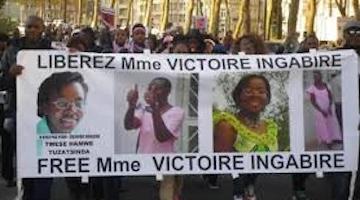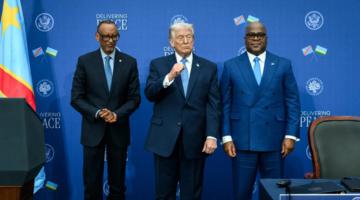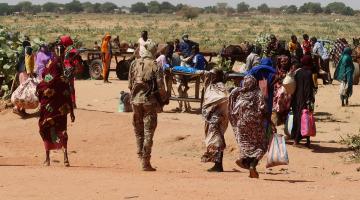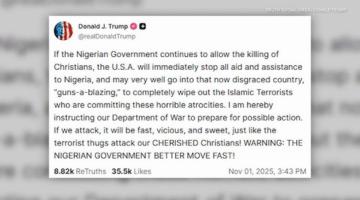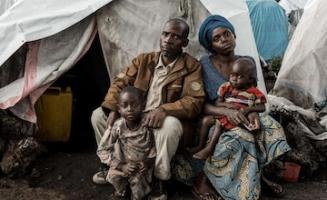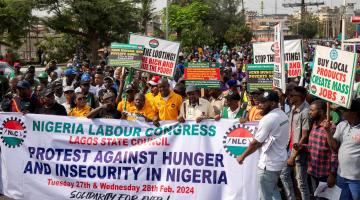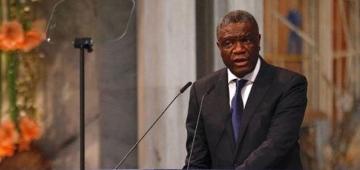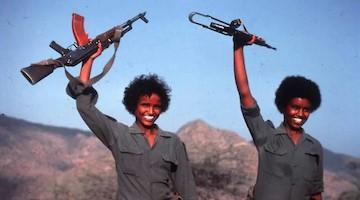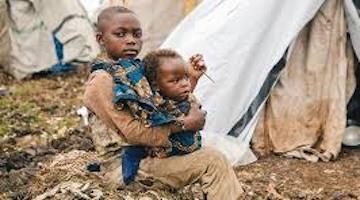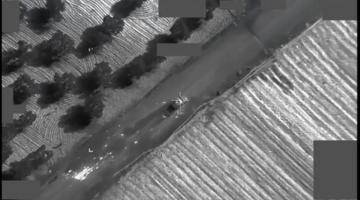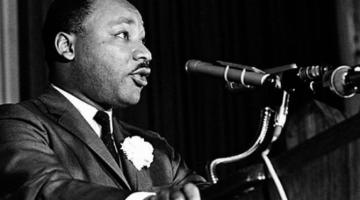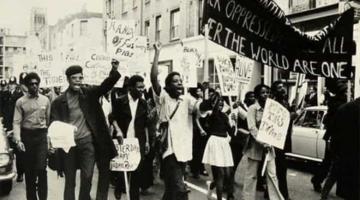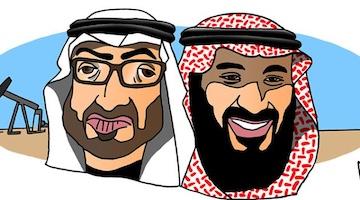Rwandan and M23 forces are the aggressors in DRC. They are integrated under Rwandan command.
The foreign ministers of Rwanda and the Democratic Republic of the Congo sat down with Secretary of State Marco Rubio to sign a so-called peace agreement at the US State Department on Friday, June 27, but the agreement does not even name the aggressors, Rwanda and its M23 militia, as such. It echoes the 2013 Geneva conference where Congolese activist Bénédicte Njoko was thrown out after confronting then Secretary Ban Ki-Moon for “guaranteeing” peace without naming the aggressors. The more things change, the more they remain the same for the Congolese, who have no powerful friends.
Despite stating that the two countries will respect one another’s territorial integrity, the agreement does not say that Rwandan troops must immediately withdraw from DRC or even acknowledge that they are aggressors there, and it does not say that there are no Congolese troops in Rwanda.
M23 operates under Rwandan command
In June and December 2024, UN investigators reported that thousands of Rwandan troops were in DRC, outnumbering those of the M23 militia, and that Rwandan and M23 militia troops were integrated under Rwandan command.
In M23/Rwanda’s military offensive launched last January, they seized the capitals of both North and South Kivu Provinces and appointed their own governors, effectively putting Rwanda in control. The agreement does not say that M23—again, operating under Rwandan command—will surrender its control of the two provinces, which Rwanda has long looked to annex.
Despite all the evidence that M23 operates with Rwandan troops under Rwandan command, the agreement refers to it as distinct from the Rwandan army. It says that M23 and DRC are negotiating their own agreement in Doha, as though M23 were simply Congolese “rebels,” as they have long claimed.
From Goma, the capital of North Kivu, Al Jazeera’s Alain Uaykani reported that fighting continued, even as the peace agreement was being signed, and that Congolese are concerned because it says nothing about M23’s withdrawal from the Kivu Provinces.
“You heard clearly that they are not mentioning the M23 rebels and AFC coalition,” he said. “They are now in control of the big province, like in North Kivu here, and also South Kivu. They have been appointing governors.”
Total capitulation to Rwanda’s narrative
The agreement makes only three references to M23, one in the glossary. The other two simply say that the parties will respect ongoing negotiations between M23 and DRC.
It makes 43 references to the FDLR, the Democratic Forces for the Liberation of Rwanda, a militia of Rwandan refugees and children of refugees who fled into eastern DRC at the end of the Rwandan war and genocide in 1994.
For decades President Paul Kagame and other Rwandan officials have repeated that the FDLR threaten to return to repeat the 1994 genocide in Rwanda and that they are the source of all the instability in Congo and the region. Rwandan Foreign Minister Olivier Nduhungirehe repeated Rwanda’s mantra at the State Department press conference before signing the agreement with a smug grin.
“This is grounded in the commitment made here for an irreversible and verifiable end to state support for FDLR and associated militias that is the bedrock of peace and security in our region,” he said. Jeune Afrique later quoted him saying that Rwandan troop withdrawal is contingent on neutralization of the FDLR. In other words, Rwandan forces can stay as long as they want just by claiming that the FDLR is still fighting.
This Rwandan narrative flies in the face of 30 years of well-documented Rwandan aggression. Rwanda invaded DRC with Uganda in 1996 and then again in 1998. According to the 2010 UN Mapping Report, its army killed tens of thousands of Hutu refugees in crimes that a competent court might rule to be genocide, war crimes, and/or crimes against humanity. Thirty years of UN investigations have also documented Rwanda’s theft of vast quantities of Congolese minerals and other resources. The agreement makes no mention of these crimes and doesn’t even acknowledge the presence of Rwandan troops in the country except in oblique reference to Rwanda’s “defensive measures.”
The so-called peace agreement’s representation of Rwanda’s actions as “defensive” and its singular focus on the FDLR as a source of instability represent a complete capitulation to Rwanda’s narrative.
Something else the agreement does not say is that Congo’s vast resources belong to the Congolese people. It refers to regional integration and lawful process in vague terms and says that both parties will benefit from “regional critical mineral supply chains.” This is widely understood to mean, for one, that Rwanda will become the region’s minerals refining hub, even though its mineral reserves pale by comparison to DRC’s.
Trump says he’s out of his depth but celebrates minerals haul
President Trump told reporters that he was out of his depth regarding the Congo conflict but that his advisor on the Congo, Massad Boulos, is not, and that the US will gain a lot of Congolese mineral rights from the deal.
“I'm a little out of my league in that one because I didn't know too much about it. I knew one thing, they were going at it for many years, with machetes, and it is one of the worst, one of the worst wars that anyone's ever seen. And I just happened to have somebody that was able to get it settled.
“I mean, just a brilliant person who is very comfortable in that part of the world. It's a very dangerous part of the world. I said, ‘Are you uncomfortable there? People are being killed. School children are being raided and killed. And I don't even want to say how, but as viciously as I've ever heard. Are you uncomfortable?’
“‘No,’ [he said], ‘that's the part of the world that I know. Very comfortable.’
“He was able to get them together and settle it, and not only that, we're getting for the United States a lot of the mineral rights from the Congo.”
Trump did not say that the Congolese people will benefit, as they most surely will not. Despite Congo’s vast resource wealth, it is the fourth poorest country in the world.
Ann Garrison is a Black Agenda Report Contributing Editor based in the San Francisco Bay Area. In 2014, she received the Victoire Ingabire Umuhoza Democracy and Peace Prize for her reporting on conflict in the African Great Lakes region. She can be reached at ann@anngarrison.com. You can help support her work on Patreon.

